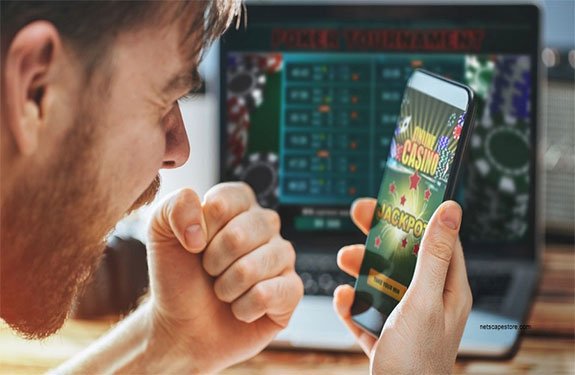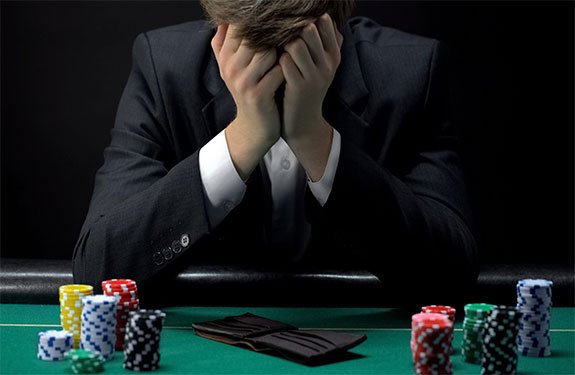Why is There a Jackpot in Slot Games? Understanding the Appeal and Purpose
One of the most exciting features of slot games, whether in a brick-and-mortar casino or online, is the jackpot. The flashing lights, thrilling sounds, and the promise of life-changing winnings are what draw millions of players to the machines every day. But have you ever wondered: Why is there a jackpot in slot games?
In this article, we’ll explore the origins of the jackpot, its purpose in slot games, and how it contributes to the overall appeal of these popular casino games. Whether you’re new to slots or a seasoned player, understanding the role of jackpots can enhance your appreciation of these games and why they continue to captivate players worldwide.
1. The Origins of the Jackpot in Slot Machines
The concept of a jackpot can be traced back to the early days of gambling. The first mechanical slot machine, known as Liberty Bell, was invented in 1895 by Charles Fey in San Francisco. This early machine featured three spinning reels with a simple payout system, where players could win coins based on the combination of symbols that lined up.
The jackpot in those early days was simply the largest payout the machine could offer, which in most cases was a payout of 50 coins for lining up three Liberty Bells. As casinos evolved and slot machines became more sophisticated, the jackpot became the primary focus of the game, and slot machines began offering higher payouts for specific combinations of symbols.
But why did this jackpot element become such a crucial part of slot games?
2. The Thrill of the Jackpot: Driving Player Engagement
A big part of why there is a jackpot in slot games is to create excitement and keep players engaged. The potential for a life-changing win is what makes slots so thrilling, and it adds a sense of anticipation with every spin.
The Role of Jackpots in Player Psychology
- Emotional Appeal: Jackpots tap into the human desire for instant gratification and wealth. The dream of hitting a big win, even if the odds are slim, is a powerful motivator that encourages players to keep spinning.
- Building Anticipation: The sound effects, flashing lights, and increasing jackpot total all work together to heighten excitement, creating an emotional rollercoaster with every spin.
- A Sense of Hope: Even when players aren’t winning big on regular spins, the presence of a jackpot provides a sense of hope—encouraging them to keep playing in the hopes of hitting that big payout.
By incorporating a jackpot, slot games maintain their appeal as an exciting form of entertainment with the possibility of a significant reward.
3. The Business Side: How Jackpots Help Casino Operators
While jackpots are thrilling for players, they also serve important purposes for casinos and online gaming platforms. Here’s how jackpots benefit casino operators:
Attracting and Retaining Players
- Creating Competitive Advantage: Casinos often use jackpots to differentiate their offerings. Games with high jackpot potential can attract a larger number of players, especially if the jackpot is linked to other games or casinos across a network.
- Promoting Loyalty: Progressive jackpots, which grow over time, can keep players engaged longer, as they know that each spin contributes to the growing prize pool. The bigger the jackpot gets, the more players are likely to return to try their luck.
Increased Player Spend
- Encouraging More Bets: In most jackpot slot games, players must place a maximum bet to qualify for the jackpot. This increases the overall stake in the game and encourages players to bet more, which benefits the casino.
- Bigger Prize Pools: As the jackpot grows, so does the excitement around the game. This encourages more people to play, which, in turn, grows the jackpot even further. It’s a self-sustaining cycle that benefits both the players and the casino operators.
4. The Two Main Types of Jackpots in Slot Games
There are two main types of jackpots you’ll encounter in slot games: fixed jackpots and progressive jackpots. Both serve the purpose of adding excitement to the game, but they function differently.
1. Fixed Jackpots:
- These jackpots have a set payout amount that doesn’t change, no matter how many players participate or how long the game has been running. Fixed jackpots are typically found in older or simpler slot games.
- Example: A traditional slot machine might offer a jackpot of 1,000 coins for hitting a specific combination. The payout is always the same, no matter how long the game has been played.
2. Progressive Jackpots:
- Progressive jackpots are linked across multiple machines, casinos, or even online platforms, and they grow with each player’s bet. A small portion of each wager goes into the jackpot pool, making the jackpot grow bigger until someone wins it.
- Example: Mega Moolah is one of the most famous progressive jackpot slots, known for payouts that regularly exceed $1 million. The jackpot continues to grow until a lucky player wins it, at which point the jackpot resets to its starting value.
5. Why Do Casinos Include Jackpot Prizes?
In addition to creating excitement and attracting players, jackpots serve a crucial role in maintaining the casino’s profitability and ensuring players remain engaged. Here’s why jackpots are included in slot games:
1. Maximizing Player Retention
Players are more likely to return to a game that offers the possibility of a significant jackpot. While slots are, at their core, games of chance, the allure of a massive payout makes players feel like they have a shot at hitting it big. This keeps players coming back, even if the odds of winning are slim.
2. Enhancing the Overall Experience
For casinos, offering jackpot slots helps to enhance the player experience by providing moments of high energy and excitement. The “what if?” factor — the idea that a jackpot might be just one spin away — creates a sense of thrill that is central to the slot gaming experience.
3. Marketing and Promotion
Casinos use jackpot slots as a marketing tool. Massive jackpots often generate media coverage, especially when a record-breaking payout occurs. This creates buzz and draws new players to the casino or online platform, eager to try their luck and possibly win big.
6. The Impact of Jackpots on Slot Design
Over the years, jackpot slots have evolved into intricate, multi-layered games. Developers have designed progressive jackpots and bonus features to keep players engaged and ensure the jackpot isn’t the only exciting aspect of the game.
Example: Multi-Level Bonus Rounds
Some jackpot games feature bonus rounds or mini-games that add an extra layer of excitement. These features might offer smaller prizes, multiplier bonuses, or even the opportunity to increase the size of the jackpot. This helps keep the game dynamic, even as players chase the big win.
Conclusion: Why Are Jackpots So Important?
The inclusion of jackpots in slot games is essential for both the entertainment value of the game and the business strategy behind casinos. Jackpots generate excitement, keep players engaged, and attract more people to the games, ensuring that the casino and the player experience thrive.
For players, the jackpot is the ultimate reward—the chance for a life-changing payout that keeps them spinning the reels. And for casinos, the jackpot serves as a powerful tool for attracting customers, retaining loyalty, and maximizing revenue.
So next time you sit down at a slot machine, remember that the jackpot is much more than just a big payout—it’s the heart of the game, driving both your excitement and the casino’s success.
Call to Action:
Feeling lucky? Find your favorite jackpot slot game at a nearby casino or online platform and try your hand at winning big today! Play responsibly and enjoy the thrill of the chase.




